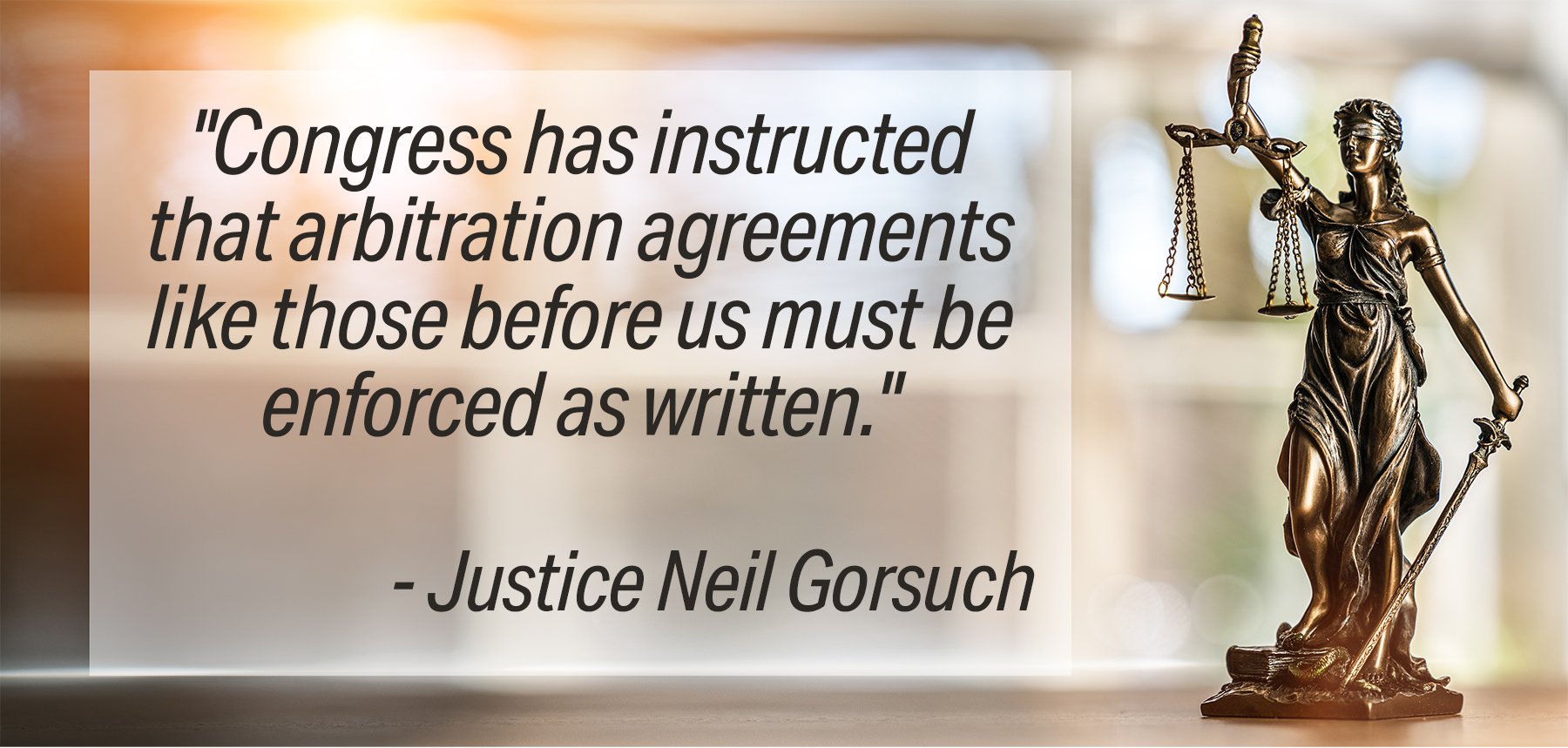
Monday’s Supreme Court ruling that upholds the use of class action waivers in employment arbitration agreements is good news for employers. The ruling allows employers to use clauses in employment contracts that require employees to pursue legal claims against their employer in individual arbitration rather than joining together to take legal action as a class.
Monday’s Supreme Court ruling that upholds the use of class action waivers in employment arbitration agreements is good news for employers. The ruling allows employers to use clauses in employment contracts that require employees to pursue legal claims against their employer in individual arbitration rather than joining together to take legal action as a class.
The Supreme Court issued its opinion in NLRB v. Murphy Oil, USA which was consolidated with two other matters, decided the issue of whether employers may include provisions in their contracts with employees that mandate individual arbitration and waive an employee’s right to pursue class action law suits.
In one of the consolidated matters, the plaintiff was a junior accountant whose contract waived his right to pursue class action remedies and mandated individual arbitration. The plaintiff attempted to bring a class action against his employer claiming that junior accountants had been misclassified under the Fair Labor Standards Act and were entitled to overtime compensation; the employer moved to enforce the arbitration agreement.
The case came to the Supreme Court as various federal courts of appeal have reached different conclusions about whether mandating employees to arbitrate disagreements with their employer on an individual basis violates an employee’s right to collectively bargain.
The Federal Arbitration Act (FAA) requires courts to respect and enforce agreements to arbitrate as they are written. On the other hand, the National Labor Relations Act (NLRA) protects employees’ rights to unionize and collectively bargain in the workplace. Thus, the case addressed whether the FAA violates or interferes with an employee’s right to collectively bargain.
The Supreme Court held that it does not. The court held, in a 5-to-4 vote, that employers may enter arbitration agreements with employees that waive the employee’s rights to file class action suits.
Justice Neil Gorsuch wrote the majority opinion. Justice Clarence Thomas wrote a brief concurring opinion, and Justice Ruth Bader Ginsburg wrote the dissent.

The Supreme Court distinguished that the NLRA “focuses on protecting unionization and collective bargaining in the workplace, not on guaranteeing class or collective action procedures in disputes before judges or arbitrators.” Further, the court emphasized its observation that the FAA requires courts to rigorously enforce arbitration agreements “including terms that specify with whom the parties choose to arbitrate their disputes and the rules under which that arbitration will be conducted." Thus, the court leaves in place an important tool allowing employers to address conflicts out of court and on an individual basis.
There are many issues an employer should consider before implementing an arbitration agreement with its employees, including the logistics and requirements of implementing an enforceable agreement, the scope of such an agreement, and the particular arbitration company or arbitration rules to use. If you would like to know more about these issues and others surrounding arbitration agreements, please consider giving us an opportunity to assist.
The information provided above is created by the attorneys in the Labor and Employment Practice Groupat Friday, Eldredge & Clark, LLP. This is not a substitute for legal advice and should be considered for general guidance only. For more information or if you have further questions, please contact one of ourLabor and Employment Attorneys.